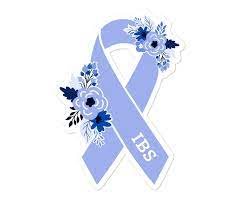
Medication Errors Prevention: A Guide to Safe Prescribing and Administration
Welcome to a critical exploration of an issue that reverberates through healthcare—medication errors. In this guide, we unravel the intricate web of causes, effects, and proven prevention strategies surrounding medication errors. Understanding these nuances is paramount for both healthcare providers and patients, as it directly impacts patient safety and overall well-being. Join us on a journey to foster awareness, implement change, and collectively work towards a healthcare landscape where errors are minimized, and patient outcomes are optimized.

Medication errors are a common problem in healthcare settings that can lead to serious consequences for patients. A medication error is defined as any preventable event that may cause or lead to inappropriate medication use or patient harm while the medication is in the control of the healthcare professional, patient, or consumer. Understanding the causes, effects, and prevention of medication errors is crucial for healthcare providers and patients alike.
Causes of Medication Errors
These can occur at any stage of the medication process, including prescribing, dispensing, administering, and monitoring. Common causes include miscommunication between healthcare providers, inadequate training or knowledge of medications, and system failures such as lack of standardization or double-checking procedures. Additionally, patient factors such as age, health status, and medication history can contribute to medication errors.
Effects of Medication Errors
The effects can range from mild to severe and can include prolonged hospitalization, disability, and even death. Patients who experience medication errors may require additional medical treatment or interventions to correct the error, which can lead to increased healthcare costs and decreased quality of life. Healthcare providers may also experience emotional distress and professional consequences as a result of medication errors.
Prevention of Medication Errors
Prevention requires a multi-faceted approach that involves healthcare providers, patients, and healthcare systems. Healthcare providers can take steps to reduce this by improving communication with other providers and patients, using technology such as electronic prescribing and barcoding systems, and implementing standardization and double-checking procedures. Patients can also play a role in preventing medication errors by informing their healthcare providers of their medication history and asking questions about their medications. Healthcare systems can support medication error prevention by providing adequate training and resources for healthcare providers and implementing policies and procedures that prioritize patient safety.
In conclusion, medication errors are a serious problem that can have devastating consequences for patients and healthcare providers. Understanding the causes, effects, and prevention is crucial for improving patient safety and reducing healthcare costs. By working together, healthcare providers, patients, and healthcare systems can take steps to prevent this issue and ensure that patients receive safe and effective medication therapy.
Disclaimer: The information provided in this content is for general informational purposes only. It is not intended as medical or healthcare advice, diagnosis, or treatment. Always seek the advice of a qualified healthcare professional with any questions you may have regarding a medical condition or healthcare decisions.
















